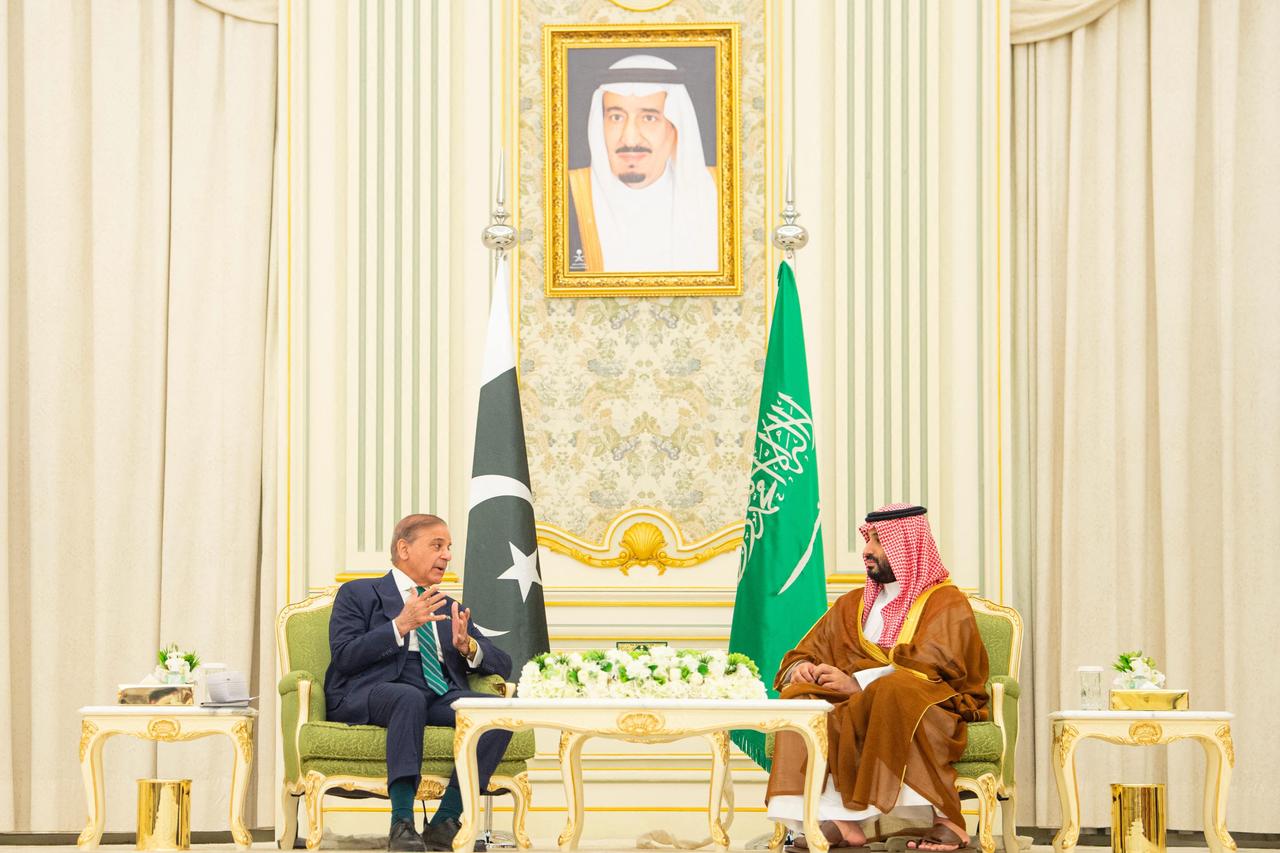
Nuclear-armed Pakistan on Wednesday signed a critical defense pact with its decadeslong ally and one of the biggest oil exporters, Saudi Arabia, to bolster its security partnership amid mounting regional tensions.
The pact, called the “Strategic Mutual Defense Agreement,” pledges that an attack on either country would be treated as an act of aggression against both and would call for a “joint deterrence” to maintain peace and security in the region and the world.
But does the pact say anything about nuclear deterrence or arsenals, and to what extent?
The development comes after Israel’s overt attack on Hamas leaders in Qatar, which has not only enraged the Arab leaders but has also raised a pivotal question about the reliability of the U.S. for security.
Although the pact or the statements from both countries do not explicitly mention anything about nuclear deterrence, a senior Saudi official told Reuters that “the pact is a comprehensive defensive agreement that encompasses all military means.” So, it’s not wise to rule out the possibility either.
The official also said that the pact is not a response to any specific event but comes in line with longstanding relations between the two countries.
The agreement was signed during Pakistan's Prime Minister Shehbaz Sharif’s official visit to Saudi Arabia at the invitation of Saudi Crown Prince and Prime Minister Mohammed bin Salman bin Abdulaziz Al Saud.
The agreement covers a wide range of topics, including defense cooperation and strengthening military ties in the backdrop of “a historic partnership extending for nearly eight decades.”
Safe to say that both countries, in their respective statements, haven’t highlighted deterrence as a core component.
They have also not laid out the exact mechanics and nitty-gritty of the pact, for instance, how readiness or deployment will be handled, or what triggers the mutual defense in case either of the countries comes under attack, as of now.
Meanwhile, it is important to note that the timing of the pact is crucial as both countries grapple with security challenges.
With regional unrest shifting power dynamics in the Middle East, Pakistan has emerged as a new power, especially after its 11-day war with archrival India, demonstrating its military prowess and defense capabilities. Although Islamabad faces its own set of economic challenges.
Riyadh is Islamabad’s steadfast ally. Both share a history of close defense and security cooperation. This pact marks a significant milestone in the friendship between the two countries.